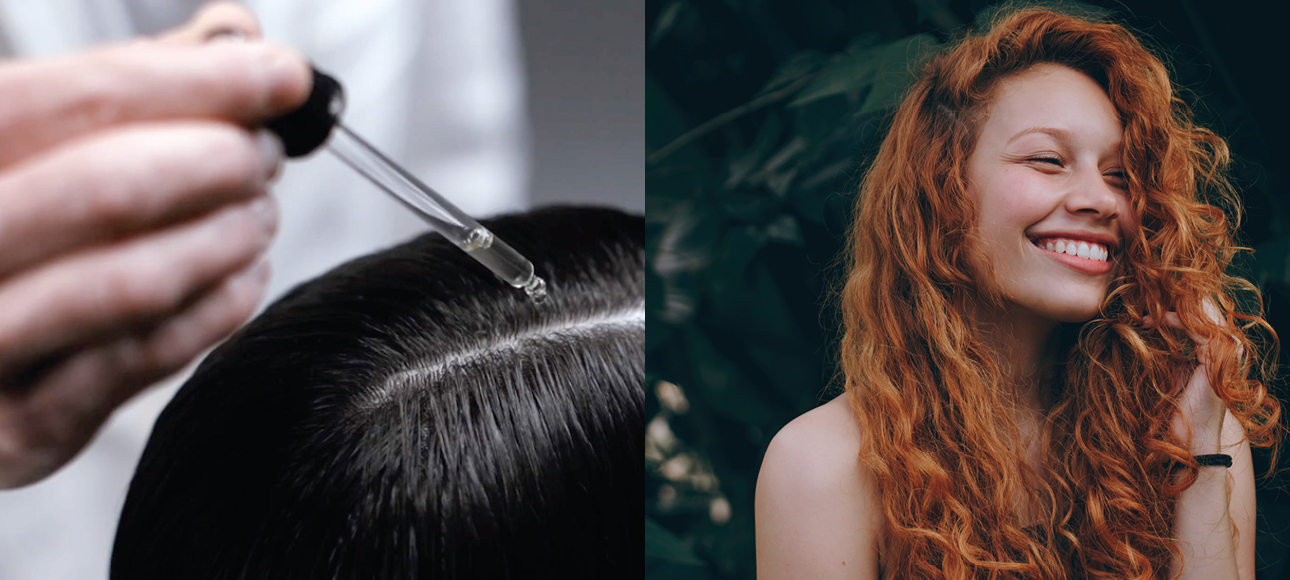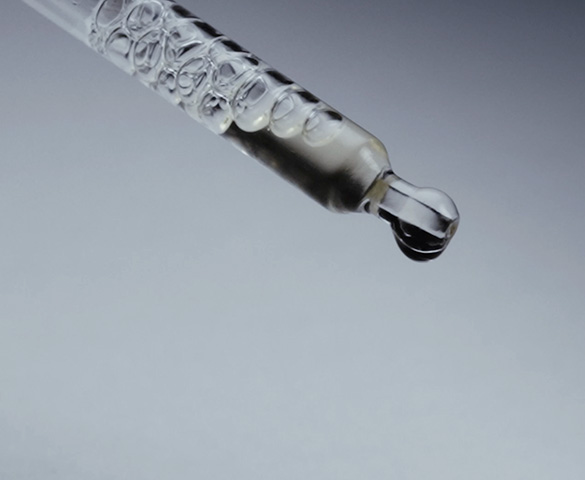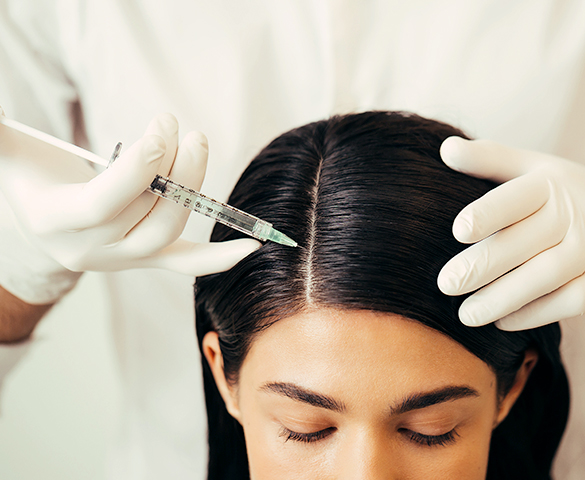
If you want to get to the root of your hair concerns, or simply maintain a healthy mane, scalp care is more than a buzzy trend, it’s a lifelong habit you should start now.
Although our scalps are simply an extension of our skin, it’s worth knowing that the skin here is thicker than the skin on your face, produces more oil and of course has far more hair follicles too. When sweat, oil, dirt, haircare products and dead skin build up on the scalp your hair follicles can get congested in the same way as your pores would on your face. This can lead to hair thinning and lacklustre tresses.
On the other hand, if your environment, lifestyle practises, and styling products have a tendency to leave your scalp dry – dandruff can ensue and your hair can become dull and dehydrated.
And that’s not all, medications can cause toxins to build-up in the body and these are then removed through our skin by our clever lymphatic system. However, when these toxins exit through the skin on our scalp, they can often accumulate in the roots of our hair leading to inflammation that can cause thinning, shedding, dandruff, and a whole host of scalp conditions. To counteract congestion, dryness and even toxin build-up, follow Ricardo’s top five scalp care tips.

1. Cleanse With Care
Invest in a hypoallergenic, sulphate free shampoo. Even if you have resilient skin, it’s safer to use a gentle formula that respects the Ph balance of your scalp and doesn’t strip your hydrolipidic film. This is an oily layer that operates as your skins first line of defence; it stops the skin from losing moisture, keeping it hydrated, which is the best environment for healthy hair growth and shiny, bouncy tresses. Sulphate free formulas will also respect the microbiome of your scalp to ensure you don’t kill off any ‘good’ bacteria. Since, if have more bad than good bacteria, you could start losing hair and what you have left will become dry, and brittle.
2. Have A Scacial
Give yourself a weekly scacial, aka a scalp facial. Before you wash your hair, the general rule of thumb is to exfoliate if you have an oily scalp and use a hydrating mask if you have a dry scalp. However, if you have dryness is an issue, plus a build-up of products and dead skin -you’ll want to do both. Exfoliating stops follicles from becoming blocked, and the healthier the follicle, the healthier the hair. While hydrating scalp masks moisturise the skin, and flood cells with water to protect and feed your scalp.

3. Give Yourself A Treat
After washing your hair, give yourself a treatment by way of a splash of hydrolysed tonic on your scalp and hair twice a week. Hydrolysed tonics calm and nourish the scalp and are packed with proteins that are broken down into small molecules so that they can penetrate the hair to strengthen, soften, and smooth hair strands.

4. Open Wide
Stress, skipping meals, processed foods and our own genetics can lead to poor nutrient absorption, which can become a real problem for your hair. You can have the most faultless haircare routine but if your blood lacks biotin, iron, folic acid, your hair will bear the brunt. This is because your body prioritises vital organ health before the health of your skin, hair and nails, making it important to eat a diet rich in proteins and fatty acids and take regular hair specific supplements.
5. Book An Appointment
There’s only so much you can do at home when it comes to your skin, so in the same way that you would see a facialist, dermatologist or aesthetic doctor once a month, it’s worth visiting a trichologist regularly too. For the ultimate slow-ageing, trichologists can offer regenerative treatments like vitamin injections, and microneedling that target the deeper layers of skin on your scalp. These styles of treatments get to work in the matrix cells of your hair, nurturing your follicles as well as the whole structure of your hair, for the ultimate youth-boost.

To learn more about how our personalised scalp treatments can enhance the health of your hair, book a consultation.


